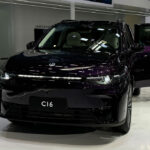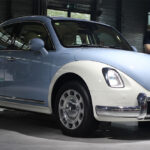Apple and BYD collaborated in 2017 to develop a cutting-edge battery system using lithium iron phosphate (LFP) cells, a technology aimed at enhancing the longevity and safety of electric vehicle (EV) batteries. This partnership was revealed in a recent Bloomberg report, shedding light on Apple’s involvement in the EV sector before abandoning its car project earlier this year.
The joint effort between Apple and BYD was focused on creating a customized battery system tailored for the cars that were part of Apple’s automotive plans. Apple’s engineers brought expertise in advanced battery packs and thermal management, while BYD contributed manufacturing techniques and advancements in LFP cell technology.
Although Apple did not own any of the technology used in BYD’s current blade batteries, the collaboration highlighted Apple’s commitment to the EV market. The technology being developed was meant to increase the range of EVs while ensuring safety and efficiency.
Despite the significant progress made through their partnership, Apple eventually decided to explore other options from different battery makers, leading to the end of their collaboration with BYD. The EV project faced multiple delays, and the economic challenges in the EV industry ultimately led Apple to abandon its car manufacturing efforts.
BYD, on the other hand, has emerged as a leader in the new energy vehicle (NEV) market, with its signature blade battery system powering its entire lineup of cars. The company sold over 3 million NEVs in 2023, recording a substantial year-on-year increase. Additionally, BYD’s NEV sales have continued to rise in 2024, solidifying its position in the global EV market.
The rapid growth of BYD’s NEV business has also propelled its battery division, making it a key player in the global EV battery market. With a focus on innovation and sustainability, BYD’s EV batteries are not only used in their own vehicles but also in models from other automakers like Nio and Xpeng.
As BYD continues to expand its presence in the EV market, the company’s collaboration with Apple serves as a testament to its commitment to driving innovation and revolutionizing the future of electric mobility. Despite the challenges faced by Apple in its EV endeavors, the experience gained from working with BYD has undoubtedly contributed to the advancement of EV technology and sustainability efforts.







